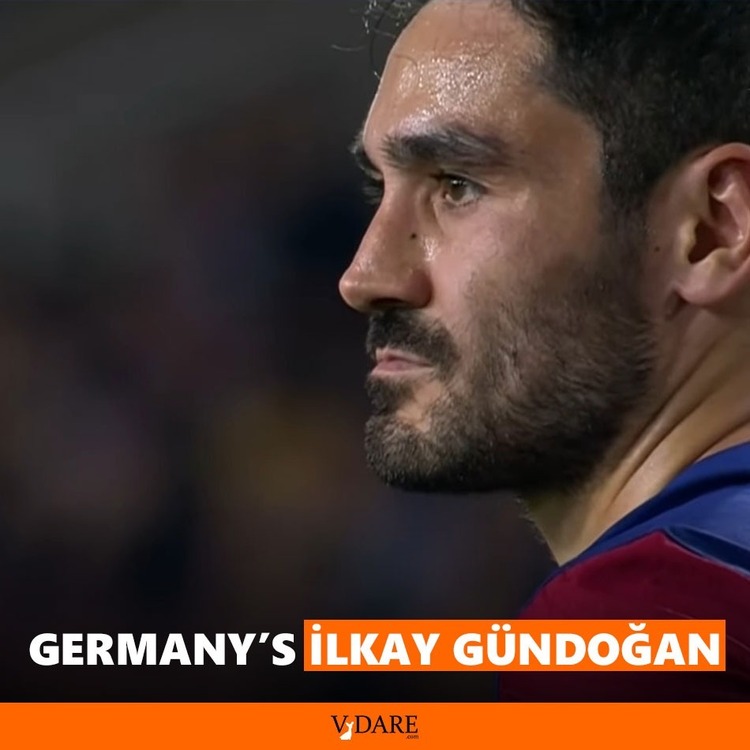
NYT: Why Don’t Turkish Germans Root For The German Soccer Team?
By Steve Sailer
06/22/2024
From the New York Times’ news section:
For Turkish Germans, Heart Overrules Home at Euro 2024
A soccer championship has doubled as a test of identity for millions of Germans with Turkish roots. For many, picking one team to support was an easy decision.
By Tariq Panja and Rory Smith
Tariq Panja and Rory Smith reported from Istanbul, Munich, Cologne, Hamburg and Dortmund, Germany.
June 22, 2024, 12:01 a.m. ET
There’s some kind of national soccer tournament going on in Europe and the captain of the German team is İlkay Gündoğan, who was born in Gelsenkirchen to Turkish parents.
… Both brothers want Gundogan to do well this month, they said. But like millions of other Germans of Turkish descent, they want someone else to win the tournament. “Only Turkey,” they said in unison when asked who they would be supporting in Euro 2024. “We live here. We were born here. But our hearts are in Turkey.”
That sense of shared pride — obvious in the Turkish flags and Turkey jerseys that are omnipresent this month in Germany’s streets and stadiums — reflects the sheer scale of Germany’s Turkish, or Turkish-descended, population. At more than seven million, Germany’s Turkish community makes up the biggest minority group in Europe’s largest country.
All across it, many Turkish Germans have considered the same questions of allegiance and identity as the Aykan brothers, and have come to the same decision. …
Germany’s Turkish community is a legacy of the years when the nation opened its doors to guest workers — or gastarbeiter — to help rebuild its shattered country after World War II.
Many of those workers stayed, starting families that now extend into their second, third or fourth generations. Every major city in Germany, and plenty of minor ones, has at least one neighborhood with a distinctly Turkish feel, where children grow up in homes not dissimilar to Altintop’s, in Gelsenkirchen….
It is not surprising, then, that when Turkey finally took to the field in this summer’s European Championship, its first match had the feel of a home game: Aside from one stand saved for fans from its opponent, Georgia, Borussia Dortmund’s Westfalenstadion was a sea of Turkish red and white.
I don’t follow soccer much these days except for the quadrennial World Cup, but in the early 2000s, the U.S. men’s national team took to regularly scheduling its crucial World Cup qualifying matches against arch-rival Mexico in Columbus, Ohio, because that was a rare American city where fans of the USA would outnumber fans of Mexico enough to give the American team the home field advantage.
Before the game, thousands of fans dressed in the country’s national colors — including the Aykan brothers — arrived at a meeting point a little more than a mile from the stadium, singing and swaying to Turkish dance and folk standards, including an ode to the nation’s founder, Mustafa Kemal Ataturk.
That’s actually a crucial point that I don’t see discussed enough: Are Turks in Germany more likely to be Kemalist secular nationalists or Islamists? Turkish nationalism, as exemplified in the worship of Ataturk, can be annoying, much like French nationalism can be. Yet, still, if Germans aren’t actively planning to implement the Schlieffen Plan to conquer Paris anymore, Germans and French can get along these days.
When the Germans invited in the first waves of gastarbeiters, Turkey was nominally secularist. Today, of course, Islamist Recep Tayyip Erdoğan has been the Turkish supremo for the last two decades. Islam of course is scary because it is a mind virus with an ancient track record of being successful.
Absolutely lacking as text strings in this NYTimes.com article:
Muslim
Islam
